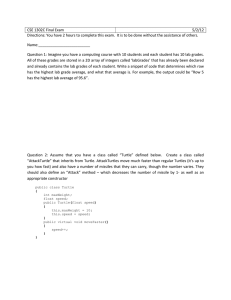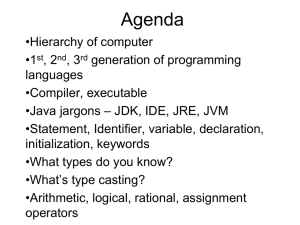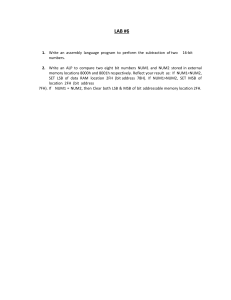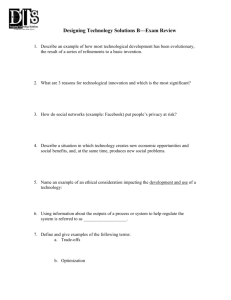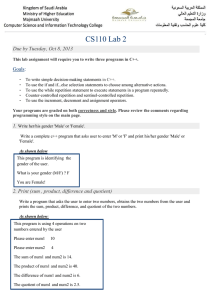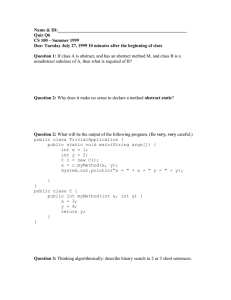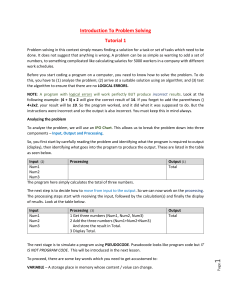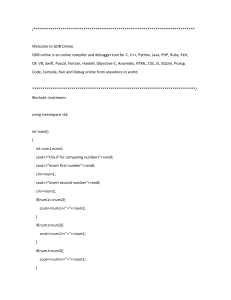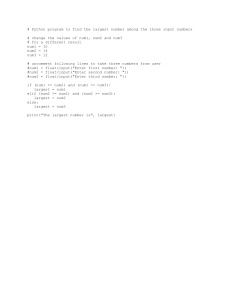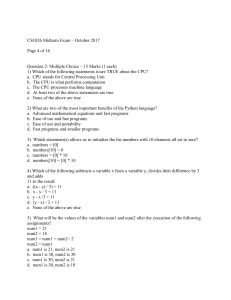It’s how stuff gets done
advertisement
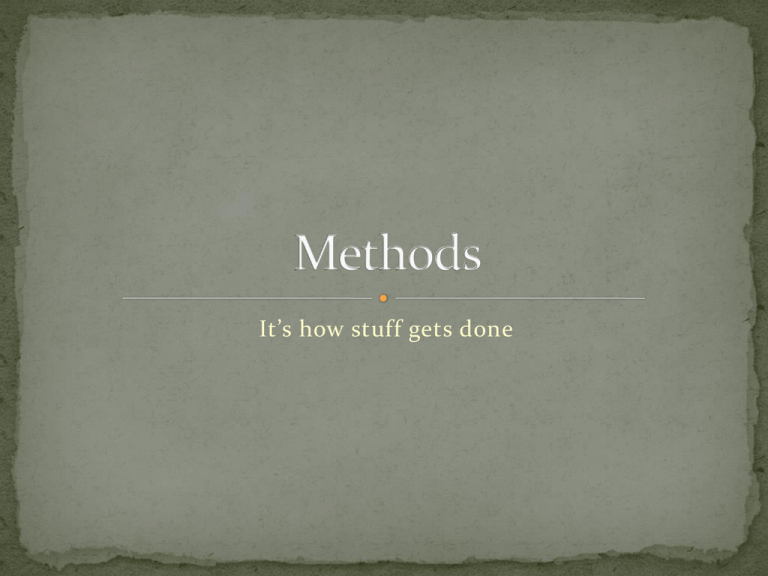
It’s how stuff gets done
Methods are blocks of code that can be called from
anywhere in the program
They take in a set of variables or nothing at all
They can return one variable or nothing at all
The methods are placed inside of the class declaration
Re-Use: Methods provide a convenient way to re-use
code. If there is a specific process that occurs
repeatedly then it can be replaced at each location
with a single method call
Management: Methods also provide a centralized
location to define a process so it can be easily changed
everywhere by changing what is inside the method.
Encapsulation: When a method has been programed
by someone else, you can also use it without worrying
about how it works.
The structure for a method is as follows:
public/private returnType name(input variables){
code
}
public/private – whether the method is public or private
returnType – what type of variable or Object the method
returns
name – the name of the variable
input variables – the variables or Objects that the method
takes in
code – the code that is executed
The following code takes in two integers, adds them
and returns their sum.
Take note that the value that gets returned follows the
key word return.
public int add(int num1, int num2){
int sum;
sum = num1 + num2;
return sum;
}
You can rewrite the previous method in one line of
code!
public int add(int num1, int num2){
return num1 + num2;
}
The following method does nor return anything as
indicated by the key word void. It also does not take
in any variables
public void shout(){
System.out.print(“Hello!!!”);
}
When primitive variables are passed into a method
they are passed by copy while objects are passed by
reference.
So if there is a primitive variable x passed into the
method then the value will not be changed outside of
the method.

